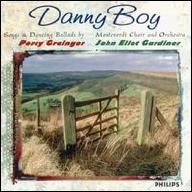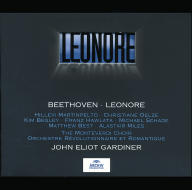Gardiner was born on April 20, 1943, in the village of Fontmell Magna in England's Dorset County. It is worth notice that for the first part of his musical education, he was largely self-taught: he sang in a village church choir and played the violin. At 15, he took up conducting, and while he was studying history, Arabic, and medieval Spanish at Cambridge, he also began conducting choirs there. He led choirs from Oxford and Cambridge on a Middle Eastern tour while still an undergraduate, and in 1964, he conducted a performance of Monteverdi's Vespers of 1610, a work little known at the time. Out of this performance grew the Monteverdi Choir, his primary performing ensemble. Gardiner studied musicology and conducting with Thurston Dart and Nadia Boulanger in the mid-'60s, which was his only period of formal musical study. In 1968, he founded a Monteverdi Orchestra to go with the choir; in the '70s, the group began to use Baroque instruments and was renamed the English Baroque Soloists. With this group and the Monteverdi Choir, Gardiner has made recordings numbering in the hundreds. Mostly during the first part of his career, he also worked with conventional symphony orchestras. His U.S. debut came in 1979 with the Dallas Symphony Orchestra, and in the '80s and early '90s, he was music director of the CBC Vancouver Symphony Orchestra, the Opera de Lyon Orchestra, and the North German Radio Orchestra (now the NDR Elbphilharmonie). In 1990, as understanding of the historical instruments used in the music of Beethoven and subsequent composers was just developing, he founded the Orchestre Révolutionnaire et Romantique, leading it on tour in 1993 with a then recently rediscovered Messe solennelle of Berlioz.
One of Gardiner's most celebrated accomplishments was his Bach Cantata Pilgrimage of 2000, with the Monteverdi Choir and English Baroque Soloists. The group toured for 52 weeks, performing all of Bach's cantatas at their appropriate times in the liturgical year, often in churches with relevance in Bach's own career. The performances were recorded and issued in lavish packaging on Soli Deo Gloria, with essays by Gardiner delving into the meaning of each work. These essays led Gardiner to publish a book, Bach: Music in the Castle of Heaven (2013). Gardiner has also recorded for Deutsche Grammophon, Philips, and other labels. His Schumann symphony recordings with the Orchestre Révolutionnaire et Romantique are credited with introducing a trend toward smaller forces in those works. Another major tour came in Spain in 2004, as Gardiner and the Monteverdi Choir retraced the medieval Camino de Santiago pilgrimage route and sang medieval Spanish repertory. Gardiner has also appeared as a guest conductor with major symphony orchestras, including the Berlin Philharmonic, the Chicago Symphony, and the Cleveland Orchestra. His recording career has not slackened in the least in his senior citizen years, as he has often released a half-dozen recordings per year or more. In 2019, he and the Monteverdi Choir released Love is come again, featuring music from the Springhead Easter Play, a mime event staged annually at Gardiner's family home and originally directed by his mother. He was not slowed much in 2020 by the coronavirus pandemic, for he already had material in the hopper, including a modern-instrument recording of a pair of Schumann symphonies with the London Symphony Orchestra. He returned in 2022 with the Monteverdi Choir and English Baroque Soloists in a new recording for the Deutsche Grammophon label of Bach's St. John Passion, BWV 245. Gardiner's many awards include designation as Commander of the British Empire in 1990 and as Chevalier of the Legion of Honor in France in 2011. ~ James Manheim, Rovi















